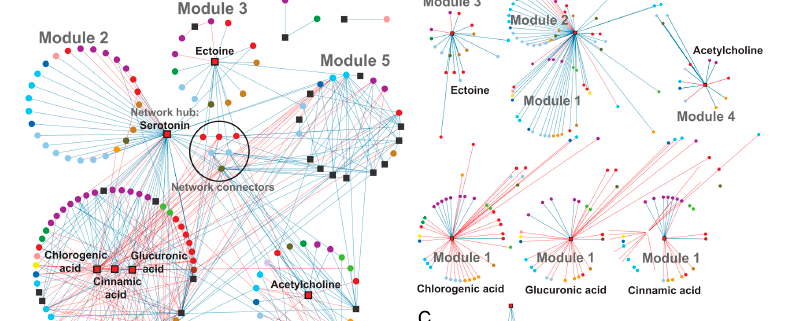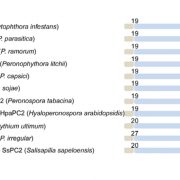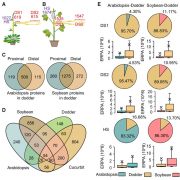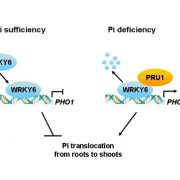Keystone metabolites influence rhizosphere metabolomes and microbiomes
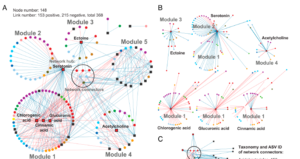 Rhizosphere interactions between plants and microbes are essential for nitrogen cycling, stress tolerance, and plant health in general. Metabolites secreted by plant roots can greatly influence microbial community composition, although how different environmental conditions impact these interactions is not fully understood. Baker et al. investigated how rhizosphere metabolites affect microbial groups in switchgrass (Panicum virgatum) when the plant is exposed to different amounts of water and nutrients. Although phosphorus and water reduction had minimal impact on microbial diversity, the metabolite profiles changed significantly. Aromatic acids like chlorogenic and caffeic acids were abundant in nitrogen-limited soils and were linked to several microbial groups. Additionally, serotonin was identified as a key metabolite that affects both plant development and microbial composition, specifically inhibiting bacteria while enhancing root length and biomass. Acetylcholine and ectoine, previously unstudied in soil, also affected microbial moisture stress responses. The results show that “keystone metabolites” like serotonin and chlorogenic acid enhance resistance to abiotic stress and influence microbial community formation in the bioenergy crop switchgrass. (Summary by Tuyelee Das, @das_tuyelee) PNAS 10.1073/pnas.2303439121
Rhizosphere interactions between plants and microbes are essential for nitrogen cycling, stress tolerance, and plant health in general. Metabolites secreted by plant roots can greatly influence microbial community composition, although how different environmental conditions impact these interactions is not fully understood. Baker et al. investigated how rhizosphere metabolites affect microbial groups in switchgrass (Panicum virgatum) when the plant is exposed to different amounts of water and nutrients. Although phosphorus and water reduction had minimal impact on microbial diversity, the metabolite profiles changed significantly. Aromatic acids like chlorogenic and caffeic acids were abundant in nitrogen-limited soils and were linked to several microbial groups. Additionally, serotonin was identified as a key metabolite that affects both plant development and microbial composition, specifically inhibiting bacteria while enhancing root length and biomass. Acetylcholine and ectoine, previously unstudied in soil, also affected microbial moisture stress responses. The results show that “keystone metabolites” like serotonin and chlorogenic acid enhance resistance to abiotic stress and influence microbial community formation in the bioenergy crop switchgrass. (Summary by Tuyelee Das, @das_tuyelee) PNAS 10.1073/pnas.2303439121


